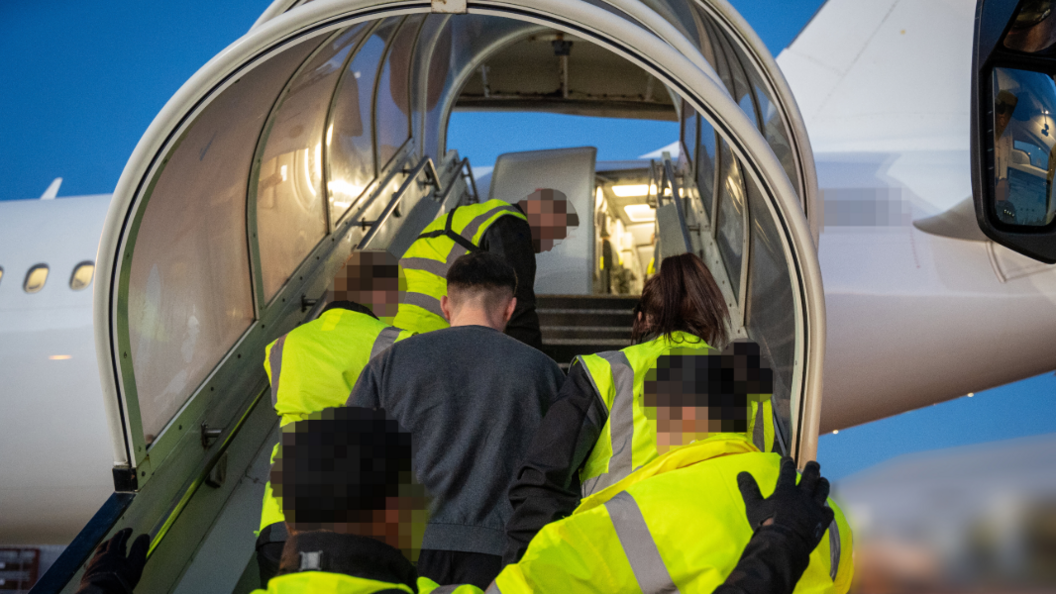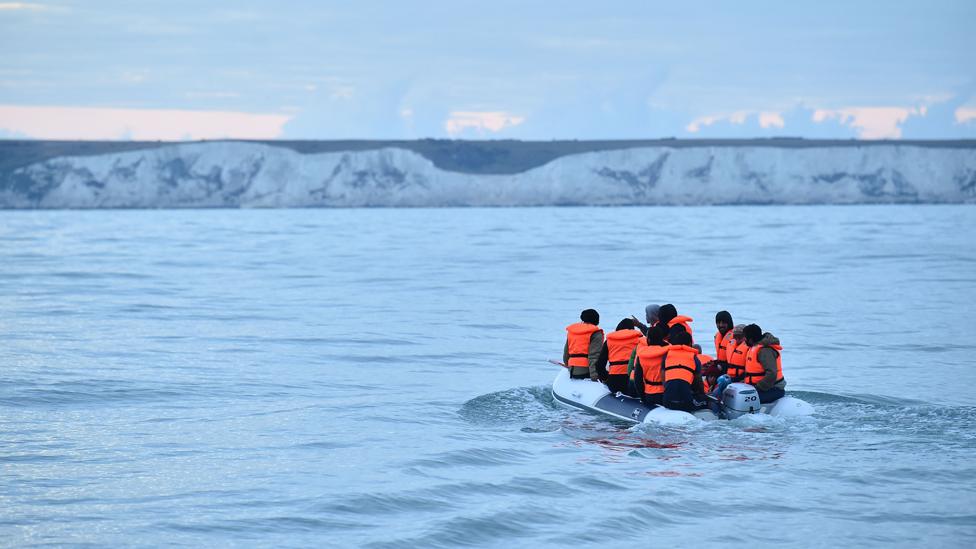Union and bishops criticise small boat refugee citizenship ban
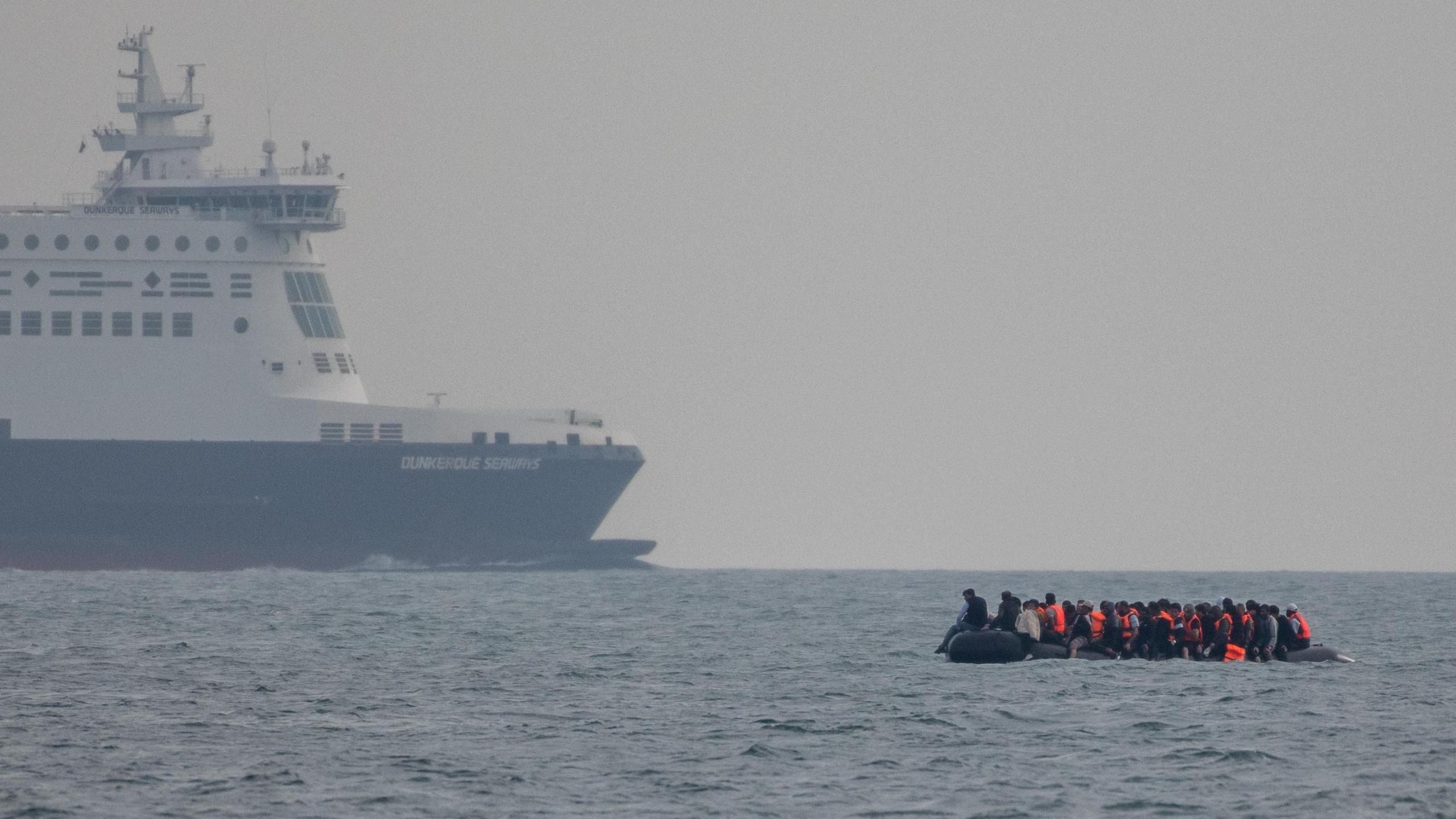
- Published
A key union has joined faith leaders and charities in warning that a policy banning refugees arriving on small boats from gaining UK citizenship could "breed division and distrust".
Fresh guidance states anyone entering the UK illegally having made the dangerous English Channel crossing - on a small boat or hiding in a vehicle, for example - will be refused citizenship.
Christina McAnea, general secretary of Unison, and nine Church of England bishops are among 147 signatories of a letter, seen by the BBC, to the home secretary urging her to rethink the policy.
They wrote that the government must instead focus on ensuring refugees "are welcomed and integrated into British life".
The Home Office says the government has merely strengthened rules that were already in place on who could obtain citizenship.
The letter argues that citizenship is "not just a legal status" but "a tangible fulfilment of the promise of safety, dignity, and opportunity".
"When refugees become citizens, they feel a greater sense of belonging as full members of their communities with a stable future for themselves, their children and generations to come."
Referring to a riot at a Holiday Inn Express in Rotherham last August, it says that part of the response to that violence "should be on creating integrated communities".
It went on: "Labelling refugees, who through no fault of their own have had to put their lives at risk on flimsy vessels, or have had to hide in the backs of lorries to reach safety on our shores, as a type of second-class individual will simply breed division and distrust.
"It risks playing into a toxic politics that pits 'us vs them' and is then manipulated by the far right to bring hate and disorder to our streets."
As well as Ms McAnea of Unison - Labour's most generous union backer in the 2024 general election campaign, donating £1.49m - other signatories include the bishops of Chelmsford, Leicester, Gloucester and Dover.
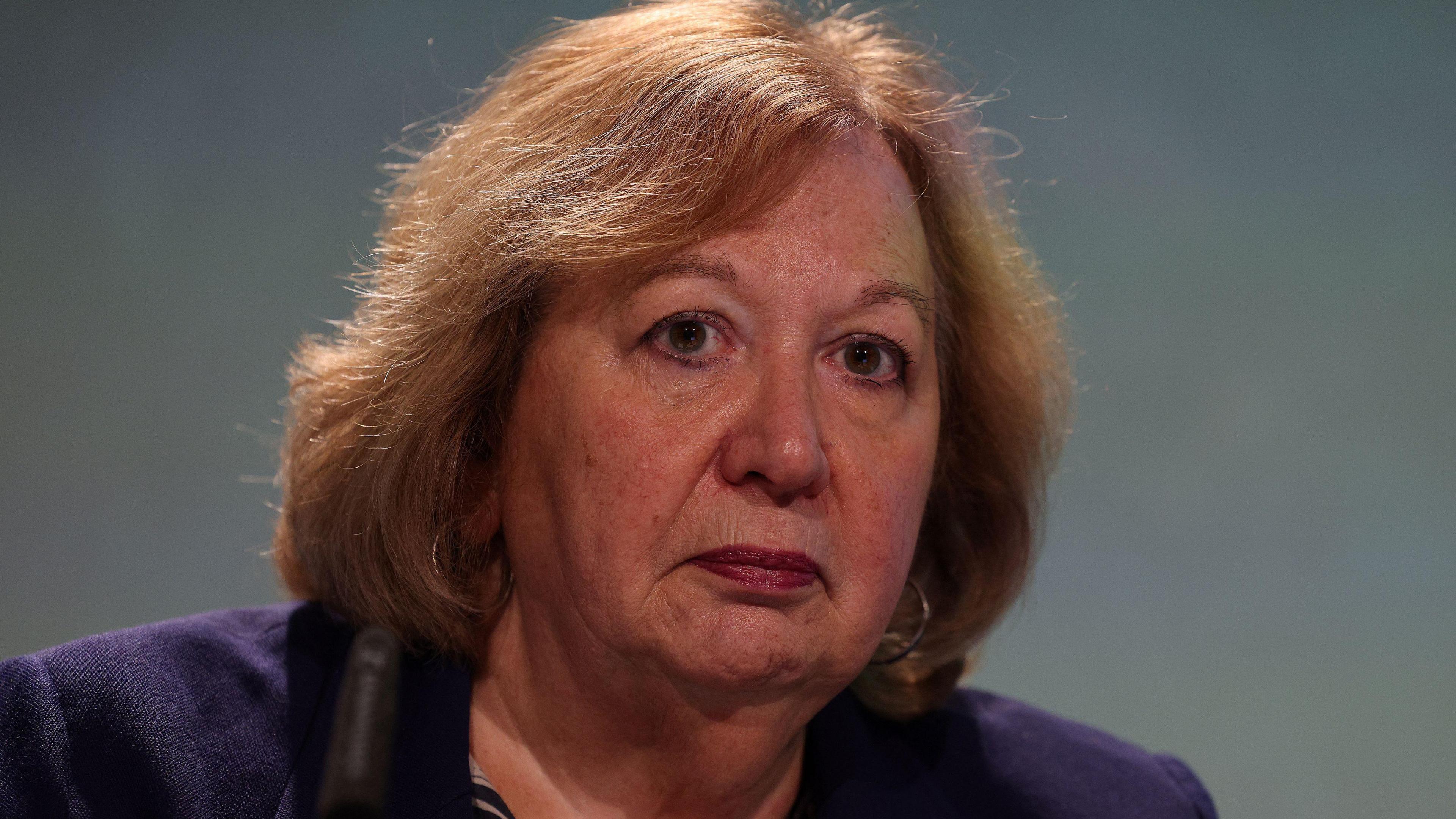
Unison general secretary Christina McAnea is among signatories of the letter to the home secretary
The chief executives of the Refugee Council and Refugee Action have also signed it, alongside Islamic Relief UK and other faith leaders, including rabbis from the Conference of Liberal Rabbis and Cantors.
The government's new policy means anyone applying for citizenship from 10 February, having previously entered the UK illegally will be refused regardless of how long ago they arrived.
Previously, refugees who arrived via irregular routes would have to wait 10 years before being considered for citizenship.
It has also been criticised by Labour MP Stella Creasy.
A Home Office spokesperson said: "There are longstanding rules that can prevent those arriving illegally from gaining citizenship.
"The government is strengthening these measures to make it clear that anyone who enters the UK illegally, including small boat arrivals, faces having a British citizenship application refused."
- Published13 February
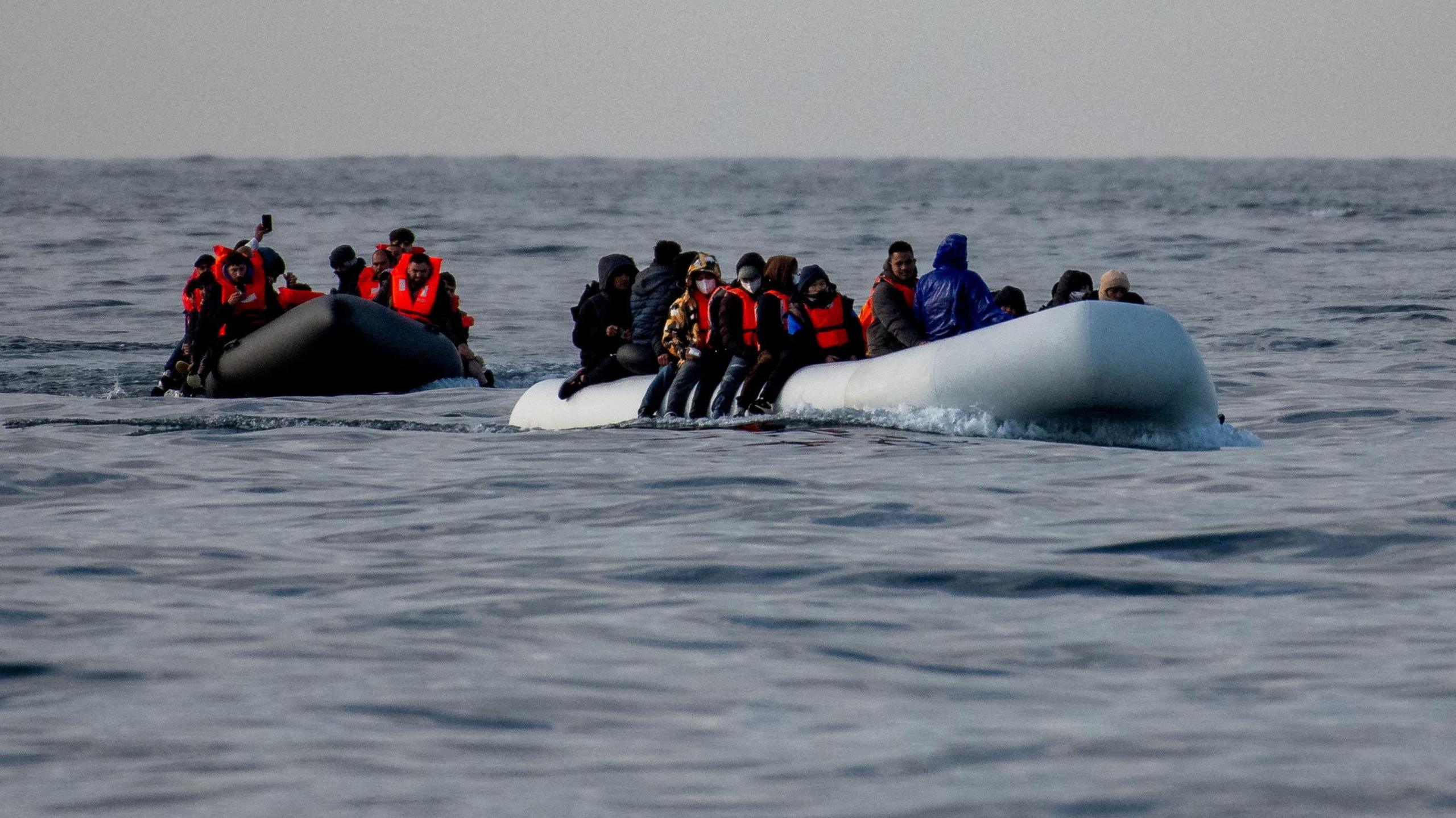
- Published10 February
